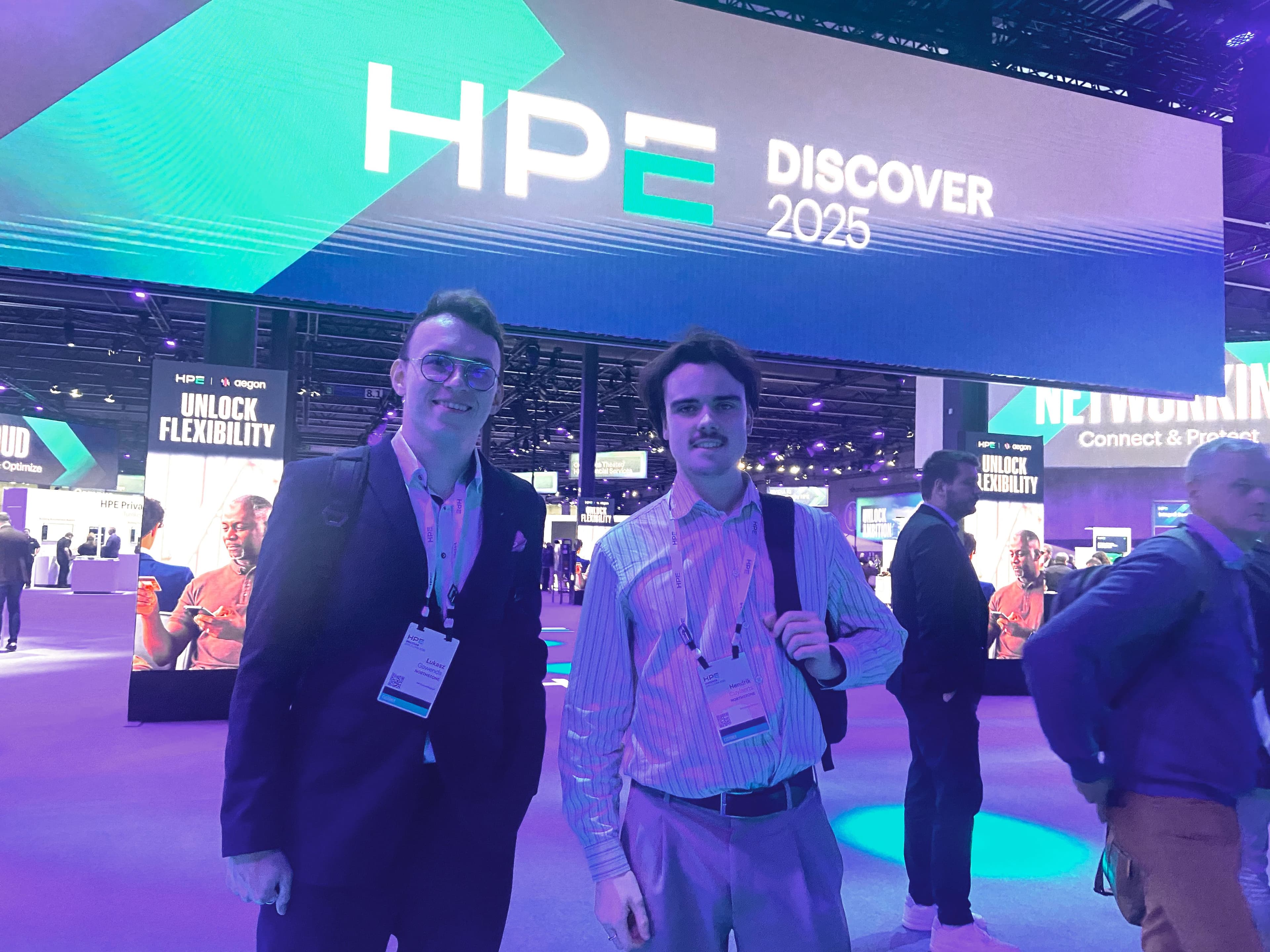VR First Aid Training Proven Effective: Academic Study Confirms Strong Learning Impact

Virtual reality is reshaping the way organizations train people, especially in domains where decisions must be quick, precise and emotionally grounded. At OneBonsai, we have always believed that immersive training can meaningfully improve real-world performance. Recently, this belief was validated through independent academic research.
A Master’s student in Germany used the full version of our First Aid VR Training in her thesis. Her work was completed with outstanding success and later published at Mensch und Computer 2025 (original), one of the most respected conferences for human–computer interaction. The results were clear: learners who trained in VR performed better, felt more confident and transferred their newly acquired skills more effectively into practice.
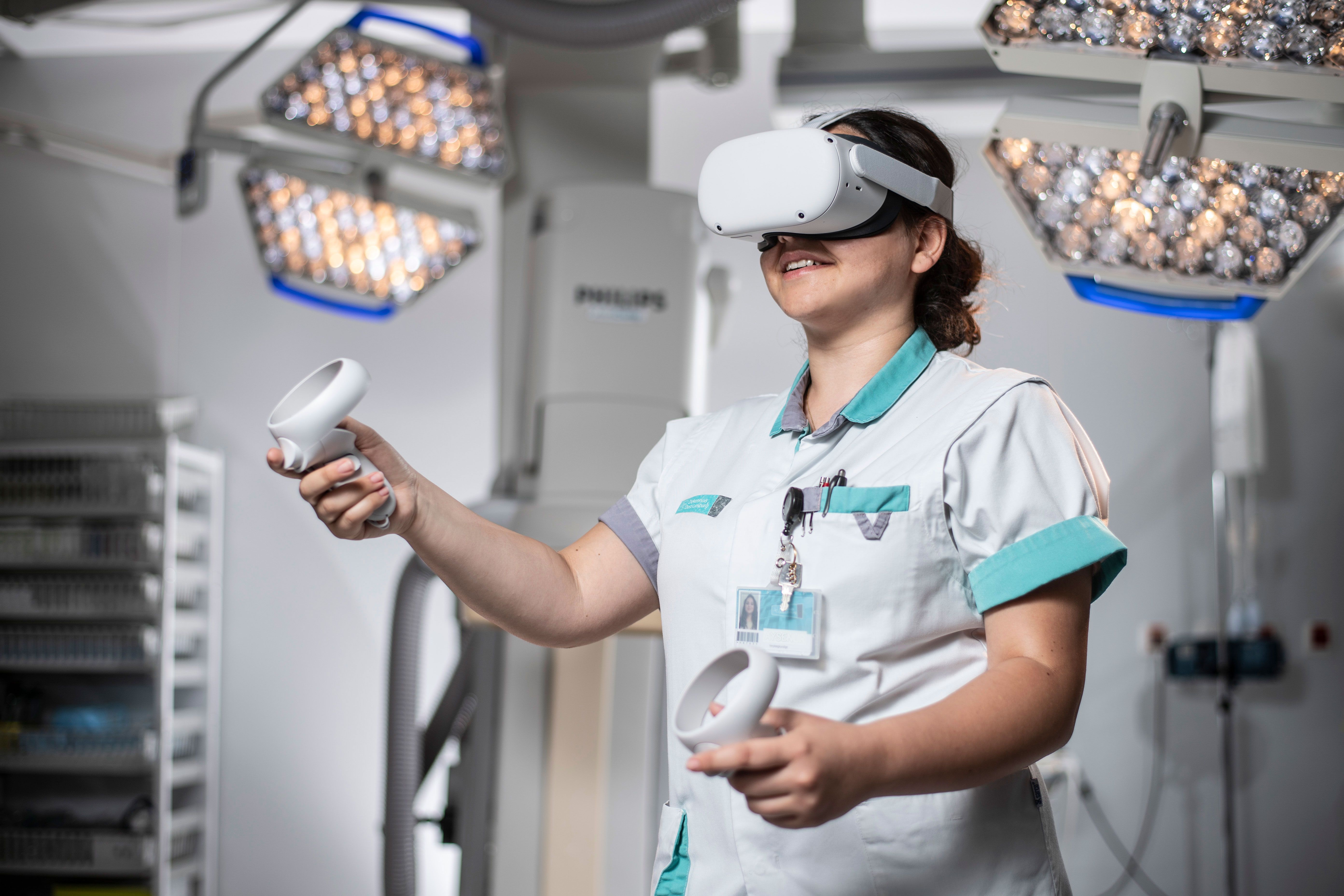
Confidence and Self-Efficacy: A Critical Learning Outcome
In first aid situations, confidence can be as important as knowledge. One of the central findings of the study was the strong increase in self-efficacy. This describes a person’s belief in their ability to handle a situation successfully.
Participants who trained with VR reported a higher sense of readiness compared to those who learned through traditional methods. The researchers concluded that VR is more effective than other formats in building this essential psychological component. When people feel capable, they are more likely to take initiative, follow proper steps and respond faster during real emergencies.
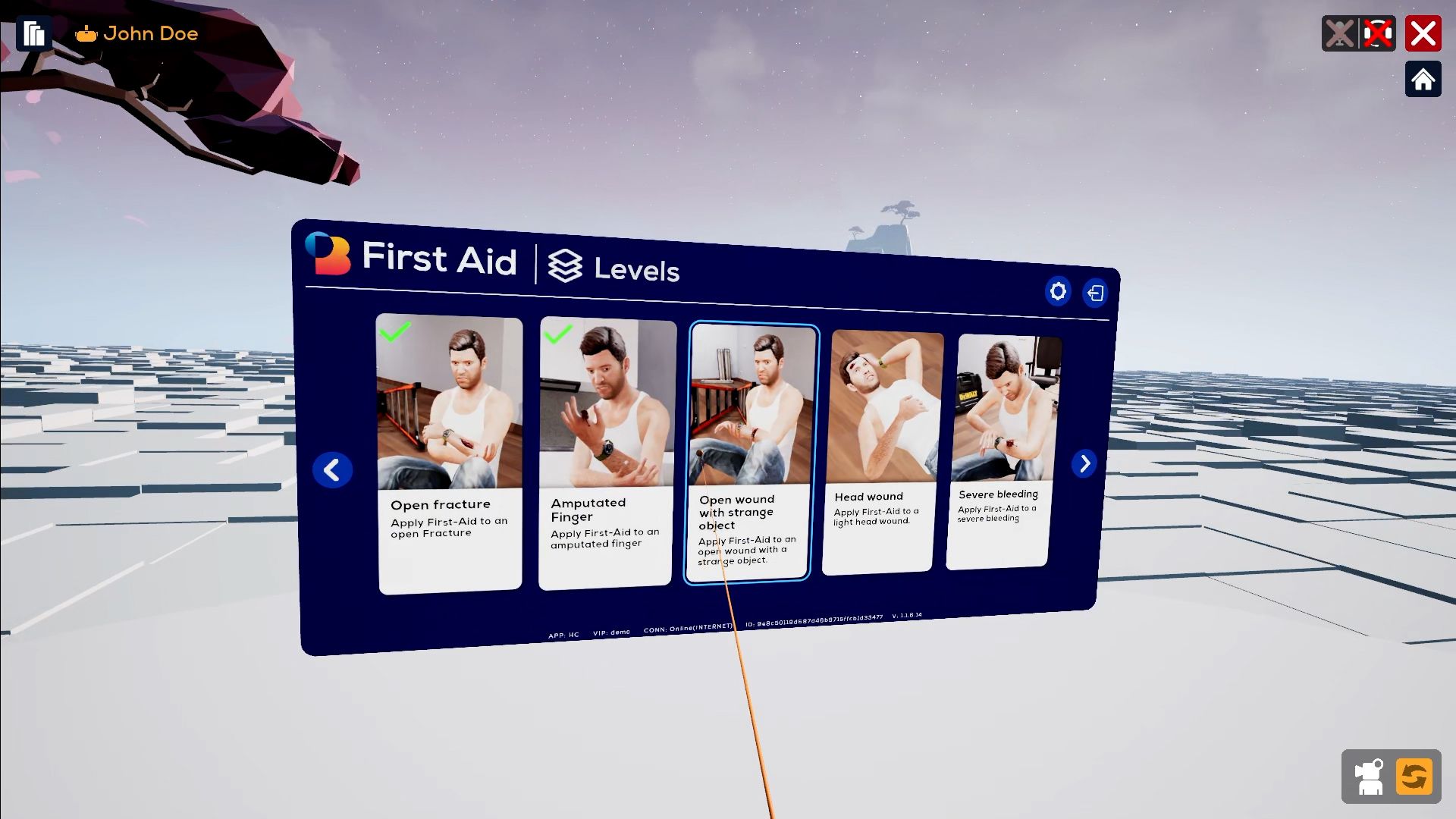
Stronger Knowledge Retention and Practical Transfer
The study involved both experienced responders and complete beginners. VR helped both groups improve their grasp of procedural steps and maintain that knowledge over time. Learners were better at recalling the correct sequence of actions and more confident in applying them afterward.
This is one of VR’s strengths. Users can repeat scenarios, make mistakes safely and practice until actions become intuitive. The controlled consistency of the simulation ensures everyone receives the same learning opportunity, something that can be difficult with classroom-based training.
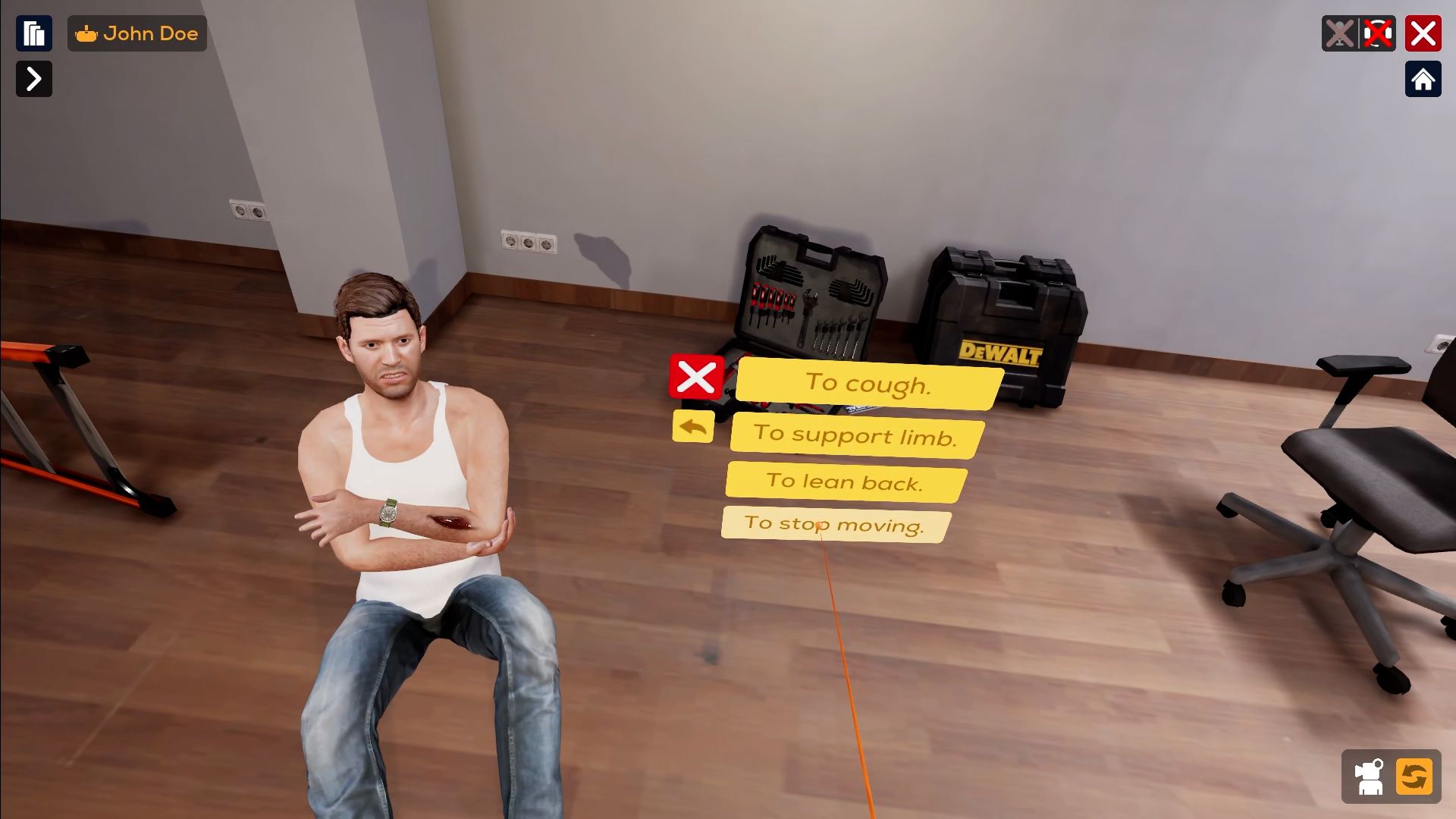
Realistic Stress Exposure Enhances Preparedness
Many real emergencies come with emotional pressure that traditional lessons cannot replicate. In the VR simulation, environmental details such as visible injuries, blood and urgency cues helped learners experience a level of situational stress they would not encounter in a classroom setting.
This heightened realism contributed to better decision-making under pressure. When the environment feels real, the brain responds accordingly. As the study highlights, elements such as the realistic depiction of blood increased immersion and made the learning experience more impactful.
Why Academic Validation Matters
High-quality VR training must be measured not only by its graphics or hardware but also by whether it works. This independent study is an important confirmation that OneBonsai’s approach leads to meaningful learning outcomes. Improved confidence, better knowledge retention and more realistic behavior under stress are all essential components of effective first aid training.
For organizations, this means that VR is not simply a modern upgrade. It is an evidence-backed method that supports safety, skills development and long-term performance. It allows teams to train more frequently, standardize instruction and reduce reliance on physical simulations or external trainers.
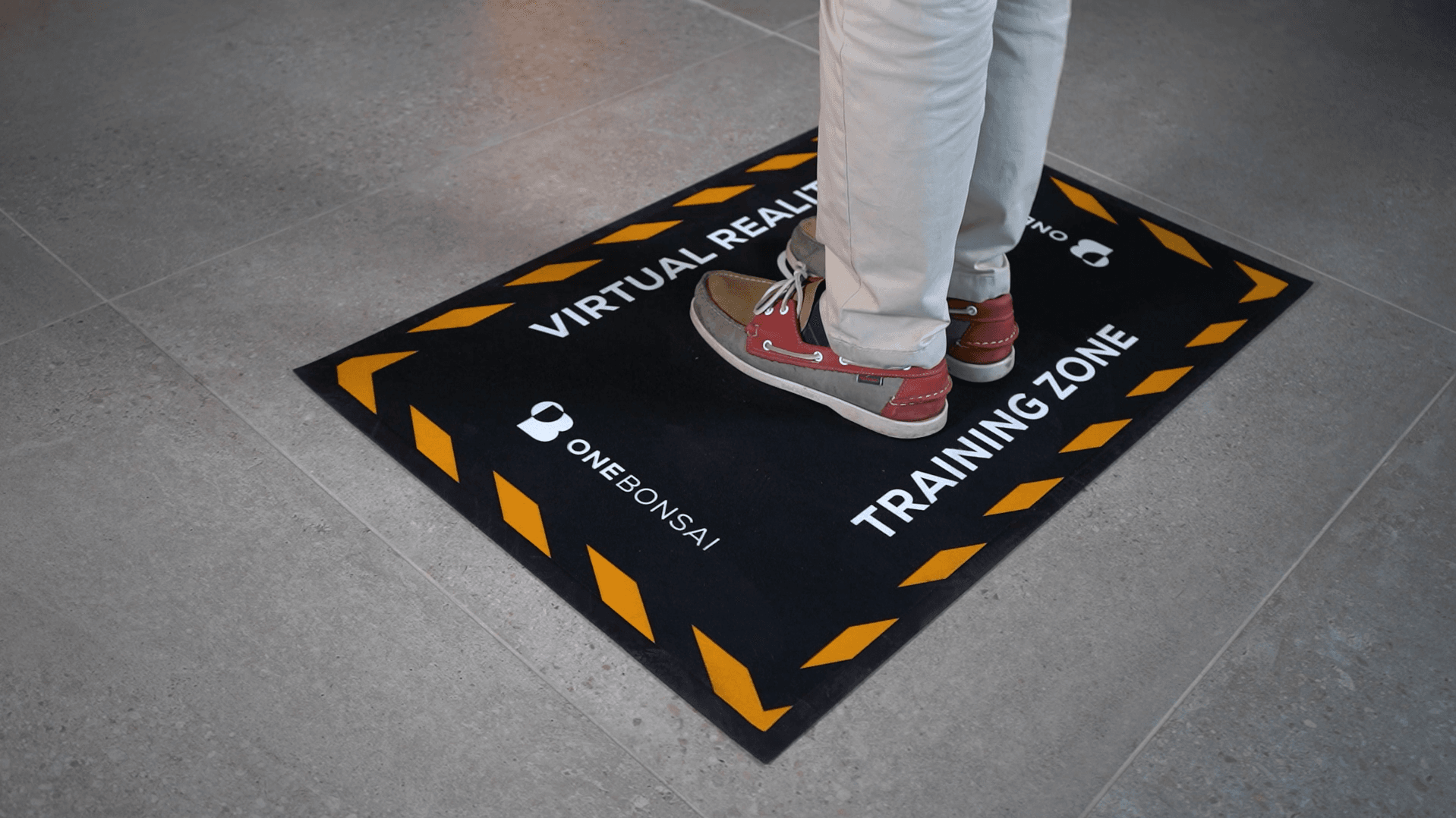
Preparing People for Real Emergencies
The results of this research reinforce what many of our clients already experience: VR first aid training is practical, engaging and memorable. It gives learners a safe space to experiment, repeat scenarios and build the mental resilience needed to act decisively in real situations.
We are proud to see our First Aid VR Training used in academic work and even prouder that it contributes to stronger, more confident responders.
If you want to explore the project further, feel free to visit the full case on our website and discover how immersive technology can elevate your training programs.

GIORGI PKHAKADZE
November 21, 2025



